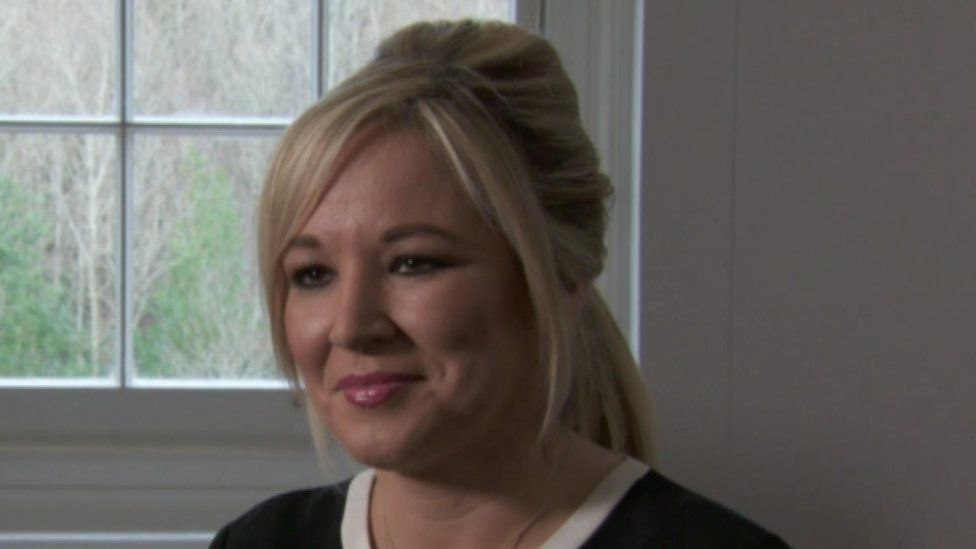Michelle O'Neill aims to 'heal the hurt of the past'
- Published

The new leader of Sinn Féin north of the border says her job is about trying to "heal the hurt of the past".
All those bereaved during the Troubles should be supported, Michelle O'Neill told BBC News NI.
"No one's hurt is worth more than anyone else's," she said.
Mrs O'Neill took over from Martin McGuinness on Monday and said she was part of a new generation of republican leaders.
She has just five weeks to prepare for an election after Stormont's power-sharing coalition fell apart over a botched energy scheme scandal.
The fallout from the Renewable Heat Incentive scandal, which is approximately £490m over budget, led to Mr McGuinness' quitting after DUP leader Arlene Foster refused to stand aside as first minster while an investigation was carried out.
As they hold a joint office, his resignation automatically put Mrs Foster out of her job and prompted the calling of snap elections on 2 March.
In her BBC News NI interview, Mrs O'Neill would not speculate on whether party president Gerry Adams might be replaced before the next Irish election, arguing it should be up to him when he stands down.
Both Mr Adams and Mr McGuinness previously said that the Sinn Féin leadership had planned its transition process.
Questioned about why the party chose its northern leader by appointment, rather than an open election, Mrs O'Neill said Sinn Féin followed its own internal processes.
Asked if former first minister Arlene Foster was someone she could work with, Mrs O'Neill said she would have no choice but to work with whoever the electorate returns.
However, she criticised what she called the DUP's arrogance in its handling of the RHI affair and insisted she would only work with others on the basis of parity of esteem, respect and equality for all citizens.
- Published23 January 2017
- Published23 January 2017